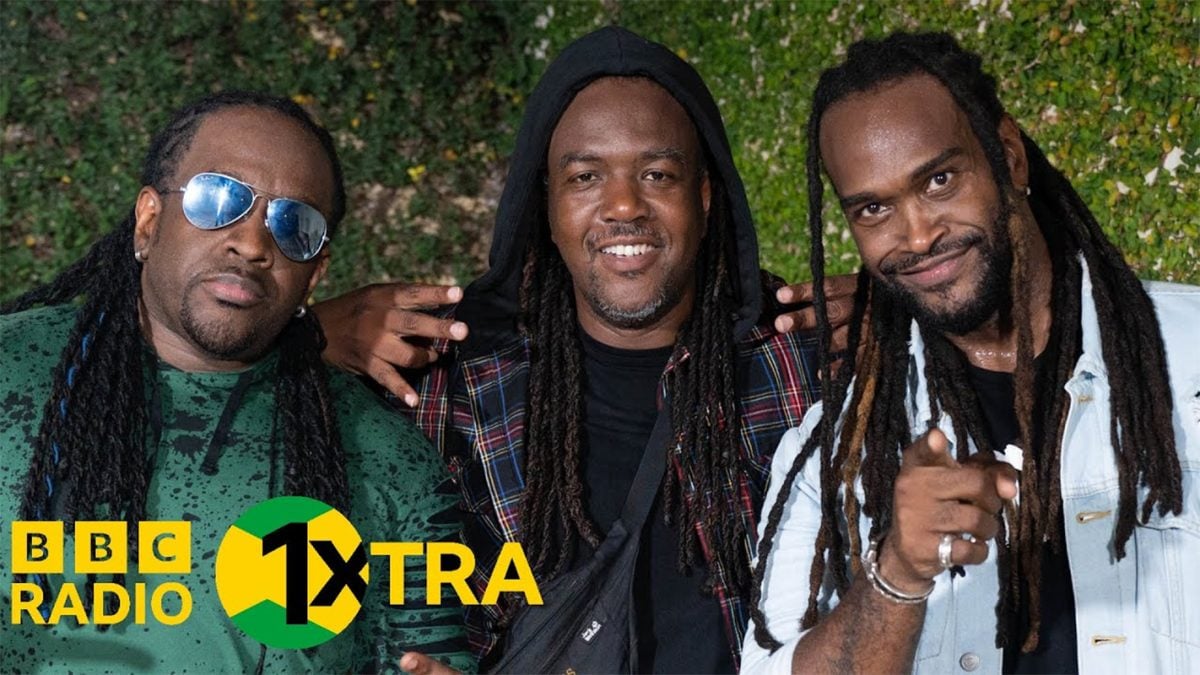T.O.K. Burns “Offensive” ‘Chi Chi Man’ Song From Catalog, Live Performances

Dancehall group T.O.K. has announced that Chi Chi Man – arguably its most popular song and for some, a Dancehall anthem – will be expunged from its performances moving forward.
The term ‘Chi Chi Man’ in Jamaican Patois is a derogatory slang used to describe gay or effeminate men. T.O.K.’s song, first released in 2000, has long been unavailable on streaming platforms, but unofficial uploads remain on YouTube.
Patrons who showed up to the Reggae Beach Party event – held recently at the popular Artistry Beach in St. Michael, Barbados – got a first-hand look at an extended T.O.K. set that did not include the crowd-favorite Chi Chi Man song.
Despite being egged on by the crowd, as well as by event hosts Infamous The Voice and Jordan English, to perform the song, T.O.K. stuck to its guns, choosing instead to keep the party rocking with other hits of theirs like Shake Yuh Bam Bam, Footprints, Money To Burn, She’s Hot and Gyal You A Lead.
Explaining the group’s decision to no longer perform the song, Roshaun ‘Bay C’ Clarke told Loop Barbados in an interview: “Basically Chi Chi Man is like a gift and a curse. It’s a great record that means so much to so many people from just the love of the music but for some people it’s offensive as well. And because we feel like the music should really unite people, we’ve made a decision to not perform the song, because we don’t want to offend any of our fans.”
The now highly controversial track, which was released on Tony ‘CD’ Kelly’s Sashi riddim in 2000, and later on the group’s debut album My Crew, My Dawgs in 2001, became one of the most highly rated songs of its time. Prior to its mainstream success, however, the song had a hard time breaking through.
In 2020, Craig ‘Craigy T’ Thompson described the classic as an ‘iron balloon’, and revealed during an interview with the Canadian Entertainment Report Podcast that the song was initially scorned by sound selectors.
“You have people who used to gi wi back di record and seh ‘yow, a f@#$%@y dis,” he explained. “Like dem a seh ‘Dis nah guh buss’, an’ gi wi back. Now imagine now, how it feel fi somebody gi yuh back a 45 weh free enuh. Even if dem nah guh play it, but jus tek it as encouragement. Dem seh ‘Dis nah guh mek it’ an ‘Dis nuh sound good”.
After some time, the song began to pick up traction in Jamaica.
“…It just start pick up inna di streets a Jamaica likkle by likkle. And before you know it, we lef go do three shows somewhere and when we came back, it was monster. Monster. And dis a even before dem tek it fi politics, becaw yuh know a did di campaign song fi JLP. But even before dat, it was a monster,” shared Craigy T.
The track was further catapulted under the national spotlight after it found favor with then leader of the Jamaica Labour Party, Edward Seaga – who reportedly loved the song’s Revivalist/Pocomania feel. He would even go on to use the song in an equally controversial political campaign.
While the young T.O.K. flourished under the increased attention, they quickly learned the downsides to the song’s success. It would become a catalyst for a number of difficult conversations – most of which the group wasn’t ready for.
Craigy T shared: “We were so young. So it wasn’t a situation like we were this militant group who were against this or whatever. It was nothing like that. But that’s the image that they were painting. I remember there was a publication one time that even referred to us as the ‘New Neo-Nazi’ movement. Dem time deh mi not even know a wha name Nazi.”
In 2007, T.O.K. was among those targeted by the Reggae Compassionate Act – a petition set up by the Stop Murder Music campaign to “renounce homophobia and excise lyrics promoting violence against gay people”. More specifically, the group was listed by Gay Rights activist, Peter Tatchell, as among those influential acts who have yet to sign the act.
On the heels of some artists signing the act, The Guardian reported that Tatchell still had eyes on a few others, T.O.K. included.
“The other five murder-music artists, Elephant Man, T.O.K, Bounty Killa, Vybz Kartel and Buju Banton, have not signed the Reggae Compassionate Act. The campaign against them continues,” Tatchell told The Guardian. He continued, perhaps with the reference to the Neo Nazis Thompson alluded to earlier: “These artists have openly encouraged the murder of lesbians and gay men, which is a criminal offence in every country… [They] are the moral equivalent of neo-Nazis and the Ku Klux Klan.”
T.O.K. was disbanded in 2015.
Now reunited, the group aims to make a splash with their new record, No Place Like Home.
